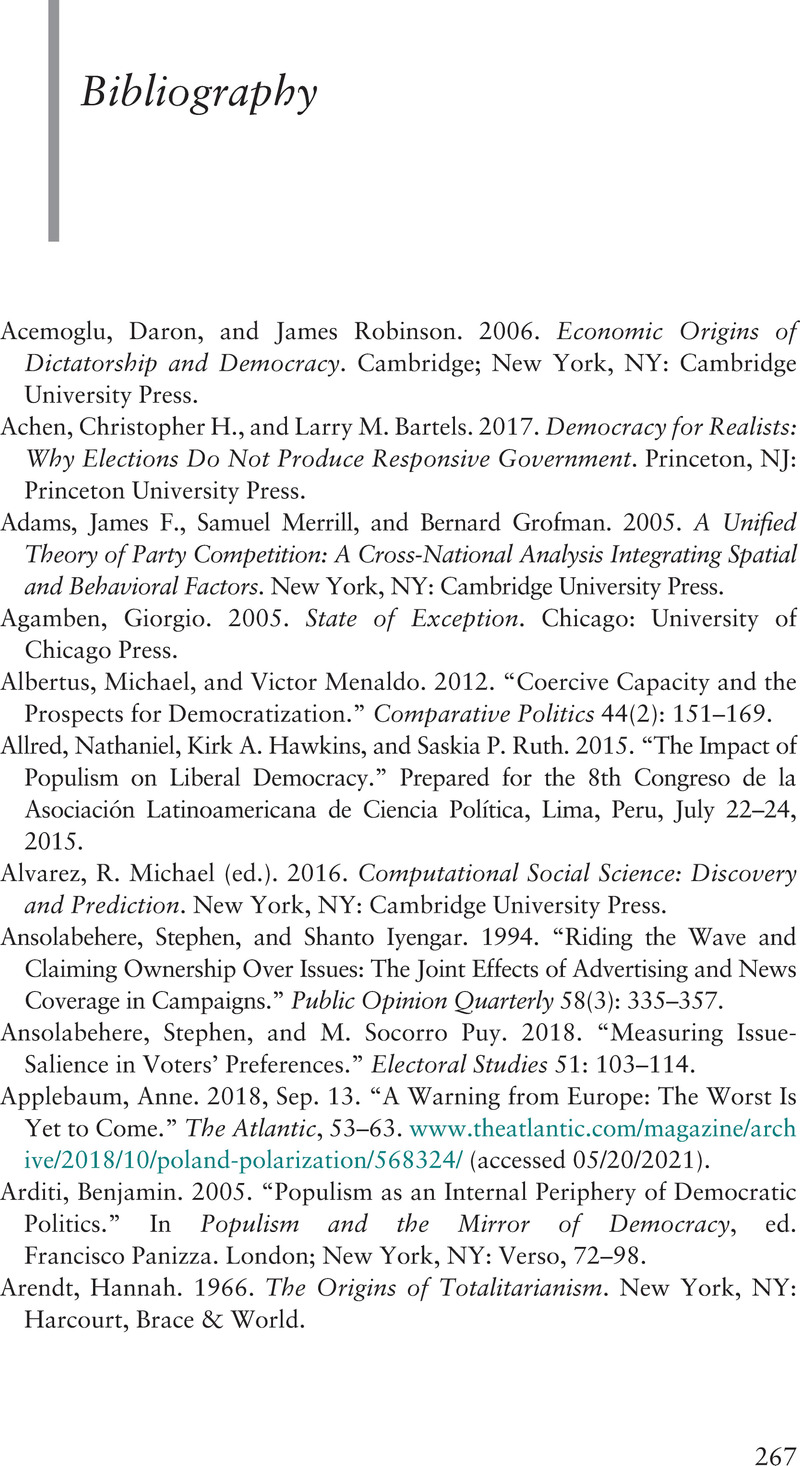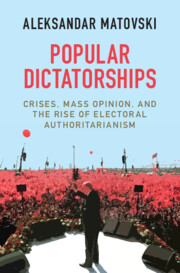Book contents
- Popular Dictatorships
- Popular Dictatorships
- Copyright page
- Dedication
- Contents
- Figures
- Tables
- Acknowledgments
- 1 A “Perfect Dictatorship?” The Puzzle of Electoral Authoritarianism
- 2 Crises, Popular Opinion, and Electoral Authoritarianism
- 3 The Crisis Roots of Electoral Authoritarianism: A Macro-Level Analysis
- 4 The “Strongman” Electoral Authoritarian Appeal: A Comparative Analysis
- 5 Crises, Popular Opinion, and the Realignment of Political Competition in Russia
- 6 Is Russia Unique? The Strongman Heresthetic in Comparative Perspective
- 7 Conclusions and Implications
- Bibliography
- Index
- References
Bibliography
Published online by Cambridge University Press: 04 November 2021
- Popular Dictatorships
- Popular Dictatorships
- Copyright page
- Dedication
- Contents
- Figures
- Tables
- Acknowledgments
- 1 A “Perfect Dictatorship?” The Puzzle of Electoral Authoritarianism
- 2 Crises, Popular Opinion, and Electoral Authoritarianism
- 3 The Crisis Roots of Electoral Authoritarianism: A Macro-Level Analysis
- 4 The “Strongman” Electoral Authoritarian Appeal: A Comparative Analysis
- 5 Crises, Popular Opinion, and the Realignment of Political Competition in Russia
- 6 Is Russia Unique? The Strongman Heresthetic in Comparative Perspective
- 7 Conclusions and Implications
- Bibliography
- Index
- References
Summary

- Type
- Chapter
- Information
- Popular DictatorshipsCrises, Mass Opinion, and the Rise of Electoral Authoritarianism, pp. 267 - 293Publisher: Cambridge University PressPrint publication year: 2021



